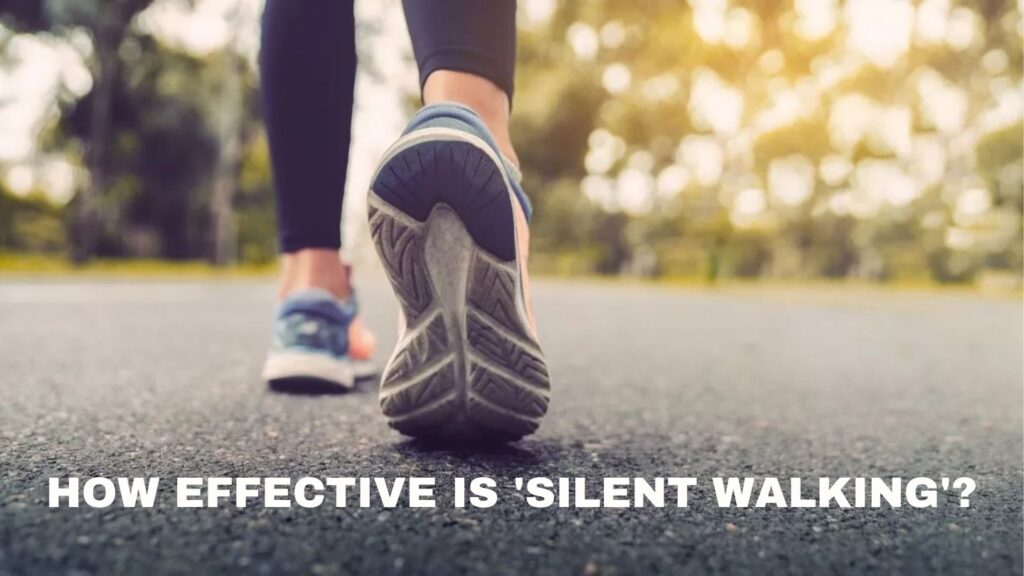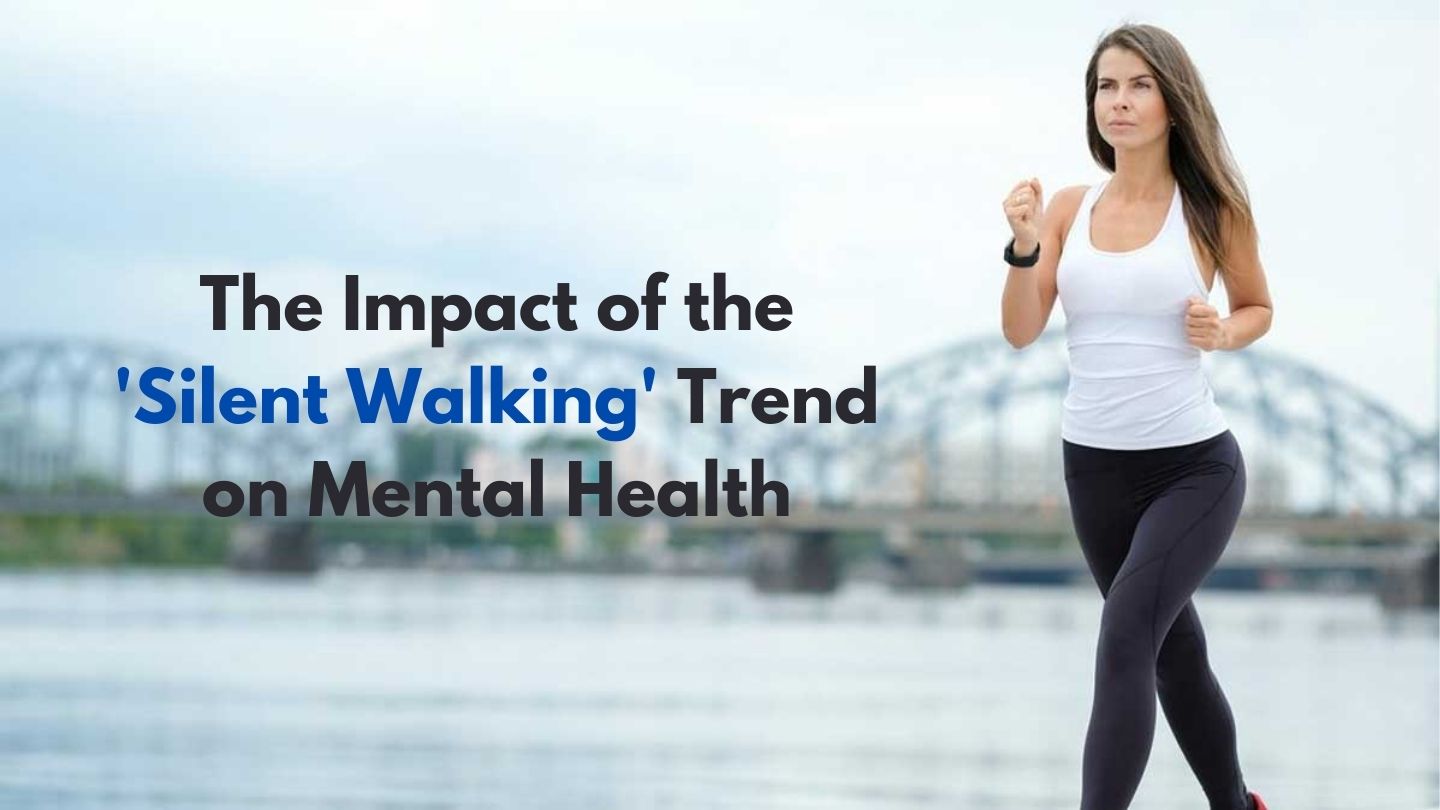In the realm of social media, new trends constantly emerge and catch the attention of users. One recent trend that has garnered significant buzz is ‘Silent Walking,’ particularly in connection to its positive impact on mental health. However, prior to jumping on any bandwagon, it is crucial to thoroughly comprehend the genuine advantages it offers.
Ever since the invention of mobile phones and the internet, people have been living more hectic lives. Whether they’re in a crowd or alone, the pressures of daily life are never far away thanks to their phones. This nonstop connection is causing an increase in stress levels, resulting in a new phenomenon on social media called ‘silent walking’ as a way to cope with the mounting stress.
In the fast-paced world of social media, there is always a new trend capturing people’s attention. Recently, the trend of ‘Silent Walking’ has been making headlines due to its potential benefits for mental health. Before jumping on the bandwagon, it is crucial to understand the true advantages of this practice. To shed light on this topic, we consulted mental health expert Vandana Sachdev, whose insights we are excited to share with you here.
What is the ‘silent walking’ trend?

The trend of ‘silent walking’ started when TikTok influencer Maddy Mao shared her experience. Her nutritionist suggested swapping cardio for a 30-minute walk each day to improve fitness. Encouraged by her boyfriend, Maddy decided to take on the challenge of walking without any distractions like her phone or headphones.
Maddy Mao bravely took on the challenge and discovered that going for a brief 30-minute stroll not only improved her physical well-being but also provided mental clarity. Delighted by her experience, she shared it on social media, inspiring others to give it a try and reap the same rewards. As a result, the trend of ‘silent walking’ took off on social platforms.
ALSO READ : Innovative Solutions to Alleviate Water Shortage During Navratri Celebrations
How effective is ‘silent walking’?

According to mental health expert Vandana Sachdev, engaging in ‘silent walking’ is a great way to have some quality ‘me time’. This involves taking a peaceful stroll without any distractions from your phone or the internet. It allows you to reflect on yourself and connect with nature in a peaceful way.
This way, even if only briefly, when alone, individuals experience a break from everyday concerns, leading to a reduction in stress levels. The relief from stress not only positively impacts mental well-being but also plays a role in improving physical health. Let’s delve into the specific benefits for both mental and physical health that come from engaging in ‘silent walking’.
Helpful in getting relief from mental depression
Taking a silent walk can be a lifeline for anyone grappling with the stresses of everyday life. The inner tranquillity attained through this practice can be a powerful antidote for depression. While it may seem perplexing to some why walking alone is necessary when one can simply sit in solitude, there is a notable distinction in the experience of being still versus being in motion.
ALSO READ : Neck Pain No More : Lasting Relief and a Pain-Free Life

Opting for a solitary walk or leisurely stroll surpasses the act of mere solitude. While seated in isolation, the mind swirls with myriad thoughts, yet embarking on a walk allows one to engage with and absorb the surrounding environment. In such moments, walking solo proves more beneficial than solitary confinement. It serves as a remedy for mental stress, alleviating insomnia, memory frailty, and other cognitive woes.
Beneficial for heart health
In addition to its positive impacts on mental well-being, ‘silent walking’ emerges as a boon for cardiovascular health as well. Indeed, adopting a light-footed stride amplifies physical exertion and enhances blood flow throughout the body. With improved circulation, the heart operates more efficiently, maintaining a steady rhythm. Notably, unlike strenuous workouts which can strain the heart, walking stands out as a gentle yet effective practice for cardiac wellness.
Viewed in this manner, engaging in “silent walking” diminishes the risk of heart-related issues and high blood pressure. Hence, you can also benefit from “silent walking” if you’re willing to momentarily set aside the allure of mobile devices and other gadgets.





One thought on “The Impact of the ‘Silent Walking’ Trend on Mental Health”
Comments are closed.